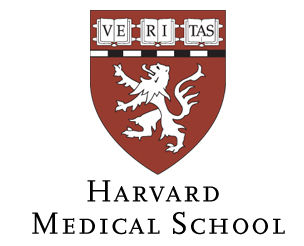Request Demo
Last update 08 May 2025
EIF4G1
Last update 08 May 2025
Basic Info
Synonyms eIF-4-gamma 1, eIF-4G 1, eIF-4G1 + [7] |
Introduction Component of the protein complex eIF4F, which is involved in the recognition of the mRNA cap, ATP-dependent unwinding of 5'-terminal secondary structure and recruitment of mRNA to the ribosome (PubMed:29987188). Exists in two complexes, either with EIF1 or with EIF4E (mutually exclusive) (PubMed:29987188). Together with EIF1, is required for leaky scanning, in particular for avoiding cap-proximal start codon (PubMed:29987188). Together with EIF4E, antagonizes the scanning promoted by EIF1-EIF4G1 and locates the start codon (through a TISU element) without scanning (PubMed:29987188). As a member of the eIF4F complex, required for endoplasmic reticulum stress-induced ATF4 mRNA translation (PubMed:29062139). |
Related
4
Drugs associated with EIF4G1Target |
Mechanism EIF4G1 inhibitors |
Originator Org. |
Active Indication |
Inactive Indication- |
Drug Highest PhasePreclinical |
First Approval Ctry. / Loc.- |
First Approval Date20 Jan 1800 |
Target |
Mechanism EIF4E inhibitors [+1] |
Active Org. |
Originator Org. |
Active Indication |
Inactive Indication- |
Drug Highest PhasePreclinical |
First Approval Ctry. / Loc.- |
First Approval Date20 Jan 1800 |
Target |
Mechanism EIF4E inhibitors [+1] |
Active Org. |
Originator Org. |
Active Indication |
Inactive Indication- |
Drug Highest PhasePreclinical |
First Approval Ctry. / Loc.- |
First Approval Date20 Jan 1800 |
100 Clinical Results associated with EIF4G1
Login to view more data
100 Translational Medicine associated with EIF4G1
Login to view more data
0 Patents (Medical) associated with EIF4G1
Login to view more data
1,490
Literatures (Medical) associated with EIF4G111 Apr 2025·SLEEP
Identification and validation of a novel autophagy-related biomarker in obstructive sleep apnea syndrome
Article
Author: Li, Yuxi ; Li, Zhiyong ; Guo, Peng ; Yi, Huijie ; Yang, Jie ; Han, Fang
01 Apr 2025·Journal of Neuropathology & Experimental Neurology
α-Synuclein distribution in olfactory mucosa and skin nerves in Parkinson disease associated with an EIF4G1 gene mutation
Article
Author: Perilli, Anna Maria ; Eleopra, Roberto ; Panteghini, Celeste ; Braccia, Arianna ; Colangelo, Isabel ; Moda, Fabio ; Ciullini, Arianna ; De Luca, Chiara Maria Giulia ; Dellarole, Ilaria Linda ; Mazzetti, Samanta ; Lombardi, Raffaella ; Elia, Antonio Emanuele ; Luppino, Alessia ; Garavaglia, Barbara ; Devigili, Grazia ; Telese, Roberta ; Suerz, Marta ; Portaleone, Sara Maria
01 Apr 2025·The Journal of Molecular Diagnostics
Biomimetic Digital Twins and Multiomics
Article
Author: Brough, Dalton ; Du, Luke ; Glick, Joe ; Kearns, William G ; Stamoulis, Georgios ; Germain, Chandra ; Kearns, Laura ; Baisch, Lawrence ; Benner, Andrew
1
News (Medical) associated with EIF4G128 Feb 2025
28/02/25
Drug discovery researchers have made significant progress towards targeting a protein that is seen as a promising anticancer target but has, until now, been considered undruggable. Using an innovative approach, they discovered a previously undocumented area of the drug target that could serve as a binding site for cancer drugs.
The target, eukaryotic initiation factor 4E (eIF4E), is essential for the production of proteins linked to cell growth in a several tumour types – including breast and prostate cancer. Blocking this protein’s activity would reduce cancer’s ability to adapt to different physiological conditions to promote its growth and survival.
A collaborative Project Team at The Institute of Cancer Research, London, and Astex Pharmaceuticals, Cambridge, identified a compound that can disrupt eIF4E’s interactions with a protein called eIF4G. The binding of these two proteins stimulates the first stage of the protein synthesis process. Although this compound did not block protein synthesis, the researchers expect that a similar but more potent small molecule inhibitor could drive a more substantial cellular response. Further research in this area could lead to treatments that are effective across a broad range of cancer types.
The study, published in the journal Nature Communications, was primarily funded by Astex Pharmaceuticals. Additional funding was provided by Cancer Research UK and The Institute of Cancer Research (ICR), which is both a charity and a research institute.
A wealth of data from previous studies has shown that eIF4E contributes to the development of cancer, and other researchers have previously attempted to target this protein. However, they have only considered two specific approaches – targeting the site on eIF4E that binds to RNA to help initiate protein synthesis and disrupting the interaction between eIF4E and eIF4G.
In this study, the Project Team at Astex Pharmaceuticals adopted an unbiased strategy, using a technique called fragment-based screening to examine the entire surface of the eIF4E protein. Unlike conventional high-throughput screening, which involves testing a large library of compounds, fragment-based screening focuses on a smaller, curated pool of several thousand simpler and smaller compounds. This strategy employs specialised equipment to identify compounds that bind effectively to the target protein.
Fragments, being smaller and simpler than larger molecules, are more likely to fit well with the target protein, although they typically exhibit a lower affinity. This provides drug discovery scientists with a strong starting point, from where they can carry out further work to build a more complex structure that could, one day, become an effective drug.
After the Astex Pharmaceuticals Team identified new fragment binding sites on eIF4E through this screening process, the scientists at the ICR’s Centre for Cancer Drug Discovery used various techniques to control the target’s activity by knocking out and then rescuing specific proteins. This allowed them to assess how each binding site contributes to eIF4E’s functions.
By tackling a longstanding problem – the inability to find potent eIF4E ligands – in a new, more open-minded way, the researchers were able to identify a new site with functional relevance for the protein. What is more, the lead compound they tested showed potential to disrupt the crucial eIF4E-eIF4G interaction by binding at this site.
The finding that this disruption was insufficient to stop protein synthesis suggests that it may be necessary to block multiple interactions between eIF4E and eIF4G to achieve a strong functional effect in cells. Alternatively, a more potent small molecule inhibitor may suffice.
The study authors note that their lead compound could also serve as a platform for developing protein degrading drugs that break down eIF4E, which would significantly aid the research community in understanding the role of eIF4E and the regulation of protein synthesis initiation in cancer. In the longer term, this greater understanding could pave the way for the development of improved drugs targeting eIF4E or the processes it controls, ultimately benefiting patients.
The research community may also benefit from another key technological innovation featured in this study. The challenge of producing large quantities of pure eIF4E protein has previously prevented scientists from using a fragment-based screening approach to better understand it. In this study, the team successfully engineered eIF4E to mask the region that was proving problematic. Other scientists could use this technique to allow them to carry out their own screening analyses on this protein of interest.
Dr Paul Clarke, Group Leader of the RNA Biology and Molecular Therapeutics Group at the ICR, said:
“Our work underscores the strength of fragment-based drug discovery for identifying new binding pockets in traditionally hard-to-drug proteins and demonstrates how it can be combined with genetic characterisation and degrader technology to explore protein function in complex biological systems.
“The Joint Project Team’s innovative approach was critical for identifying novel fragment hits and enabling the iterative, structure-guided design that produced not only our tight-binding tool compound but also a closely related, less active control compound for comparison in cell-based experiments. With further work, I am optimistic that we can harness and build on our findings to develop a new, effective treatment approach across multiple types of cancer.”
Dr Olivia Rossanese, Director of the Centre for Cancer Drug Discovery at the ICR, said:
“This exciting discovery could open up a new line of attack against cancer, hopefully leading to smarter, kinder treatments for patients. At the Centre for Cancer Drug Discovery, our focus is on discovering new drugs to meet the challenges of cancer evolution and drug resistance, so cancer patients have more treatment options – extending and saving lives. By exposing a weakness in eIF4E, Dr Clarke and his colleagues have taken the first significant step to blocking its activity and potentially hindering cancer’s ability to flourish.
“They have also confirmed a powerful method for discovering druggable binding sites, which could help researchers across the world make progress against a range of potential anticancer targets. I’m excited to see where this research can take us over the coming months and years.”
PROTACs
Analysis
Perform a panoramic analysis of this field.
login
or

AI Agents Built for Biopharma Breakthroughs
Accelerate discovery. Empower decisions. Transform outcomes.
Get started for free today!
Accelerate Strategic R&D decision making with Synapse, PatSnap’s AI-powered Connected Innovation Intelligence Platform Built for Life Sciences Professionals.
Start your data trial now!
Synapse data is also accessible to external entities via APIs or data packages. Empower better decisions with the latest in pharmaceutical intelligence.
Bio
Bio Sequences Search & Analysis
Sign up for free
Chemical
Chemical Structures Search & Analysis
Sign up for free


